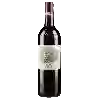
Winery Maryse GilletBordeaux
In the mouth this red wine is a powerful with a nice balance between acidity and tannins.
This wine generally goes well with poultry, beef or veal.
Taste structure of the Bordeaux from the Winery Maryse Gillet
Light | Bold | |
Smooth | Tannic | |
Dry | Sweet | |
Soft | Acidic |
In the mouth the Bordeaux of Winery Maryse Gillet in the region of Bordeaux is a powerful with a nice balance between acidity and tannins.
Food and wine pairings with Bordeaux
Pairings that work perfectly with Bordeaux
Original food and wine pairings with Bordeaux
The Bordeaux of Winery Maryse Gillet matches generally quite well with dishes of beef, veal or game (deer, venison) such as recipes of borscht (russia), ardéchoise fly or rabbit with green olives.
Details and technical informations about Winery Maryse Gillet's Bordeaux.
Discover the grape variety: Sémillon
Sémillon blanc is a grape variety that originated in France (Bordeaux). It produces a variety of grape specially used for wine making. It is rare to find this grape to eat on our tables. Note that this grape variety can also be used for the elaboration of eaux de vie. This variety of vine is characterized by large bunches of grapes, and grapes of large size. Sémillon Blanc can be found in several vineyards: South-West, Languedoc & Roussillon, Cognac, Bordeaux, Armagnac, Provence & Corsica, Loire Valley, Rhone Valley, Savoie & Bugey, Beaujolais.
Informations about the Winery Maryse Gillet
The Winery Maryse Gillet is one of of the world's greatest estates. It offers 6 wines for sale in the of Bordeaux to come and discover on site or to buy online.
The wine region of Bordeaux
Bordeaux, in southwestern France, is one of the most famous, prestigious and prolific wine regions in the world. The majority of Bordeaux wines (nearly 90% of the production Volume) are the Dry, medium and Full-bodied red Bordeaux blends for which it is famous. The finest (and most expensive) are the wines of the great châteaux of Haut-Médoc and the right bank appellations of Saint-Émilion and Pomerol. The former focuses (at the highest level) on Cabernet Sauvignon, the latter on Merlot.
The word of the wine: Cep
Grapevine.














